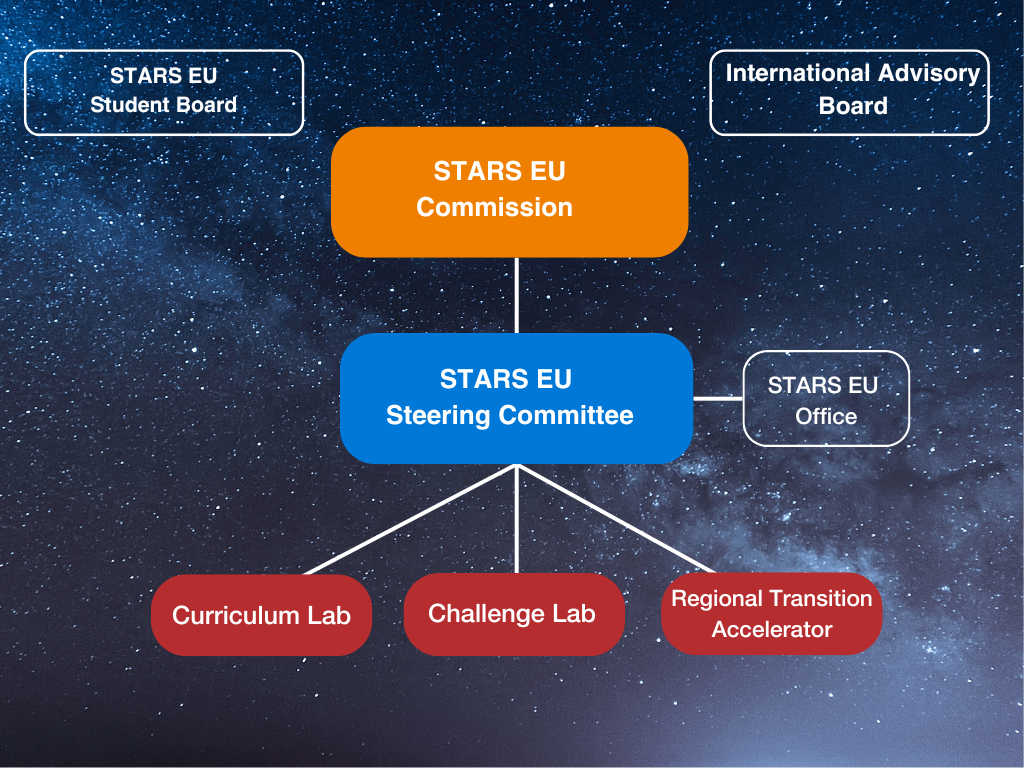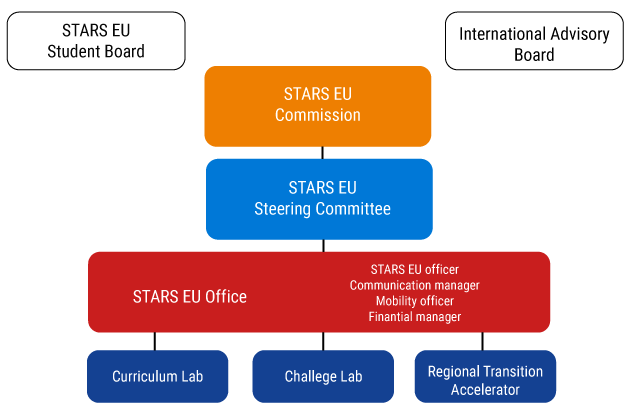

The governance of STARS EU is structured under the STARS EU Commission, composed of the presidents and rectors of the nine partner universities. This Commission, which was established to ensure the stability and development of the alliance, holds semi-annual and ad hoc meetings to resolve specific issues. The Steering Committee is the main alliance development structure. The Committee is responsible, among other functions, for design and implementation of the STARS EU vision and mission, and long-term collaboration strategy making impact in the partner regions, Europe and beyond. The STARS EU Office is a support structure and is responsible for actively involving teaching, research, academic and administrative staff, as well as students. Its objective is to promote the growth of institutional and inter-institutional cooperation enhancing internal involvement, connecting partners and securing the achievement of results. The Student Board is made up of three representatives from each of the nine STARS EU partner universities. The Student Board plays an important role in the decision-making process providing advice on the major developments of the alliance. The International Advisory Board is responsible for monitoring, quality assurance and external advice, including policy advice on the alliance’s long-term strategy and goals. It provides feedback on methodological appropriateness, relevance, integrity and compliance with the established requirements, work plan and timelines. It is composed of 7 independent internationally recognized external experts from academia, research and industry. The permanent STARS EU cooperation structures secure the effective and engaging collaboration at all levels:
In Curriculum Lab joint education activities are ensured: innovative, future-proof and challenge-based education; new student-centred and personalised curricula and micro-credentials; including mobility, naturally embedded as a daily part of the educational process; innovative pedagogy and teaching/learning settings that favour the development of relevant future competencies and languages; boost students’ employability; extra-curricular activities, volunteering, involvement of the students in the development processes. In Challenge Lab the collaborative research is developed: addressing current global and European challenges; supporting green and digital transition; promoting cooperation with industry and all relevant stakeholders at large; supporting Thematic Interest Groups (Knowledge-creating teams) activities in identified STARS EU Priority Areas; pooling knowledge and competences needed; enabling the knowledge valorisation and transfer of research results to society through spin-offs; identifying the R&D challenges – creating the Agenda for Research Solutions. In Regional Transition Accelerator regional and interregional collaboration with all regional innovation ecosystem actors will be enabled: establishing the Living Labs (Multistakeholder partnerships); joint projects addressing market needs thus providing companies and SME services and access to R&D and knowledge-driven infrastructure.

